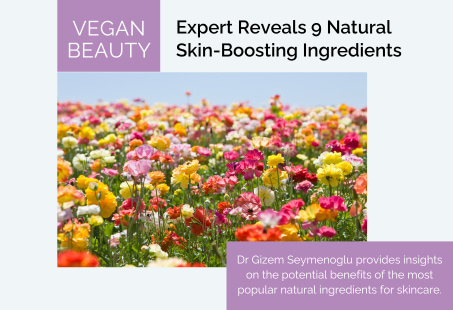With vegan beauty gaining more and more traction, many people are looking for more natural, plant-based skincare ingredients.
From aloe vera to rose, green tea and chamomile, the team of specialists at Longevita.co.uk compiled a list of some of the most popular plants and flowers, working alongside Dr Gizem Seymenoglu, a facial aesthetics doctor to explain their potential benefits known to treat certain skincare conditions and needs.
Aloe Vera
Dr Gizem said: “Aloe vera is a very common houseplant that is known for its skin-protective and healing properties.”
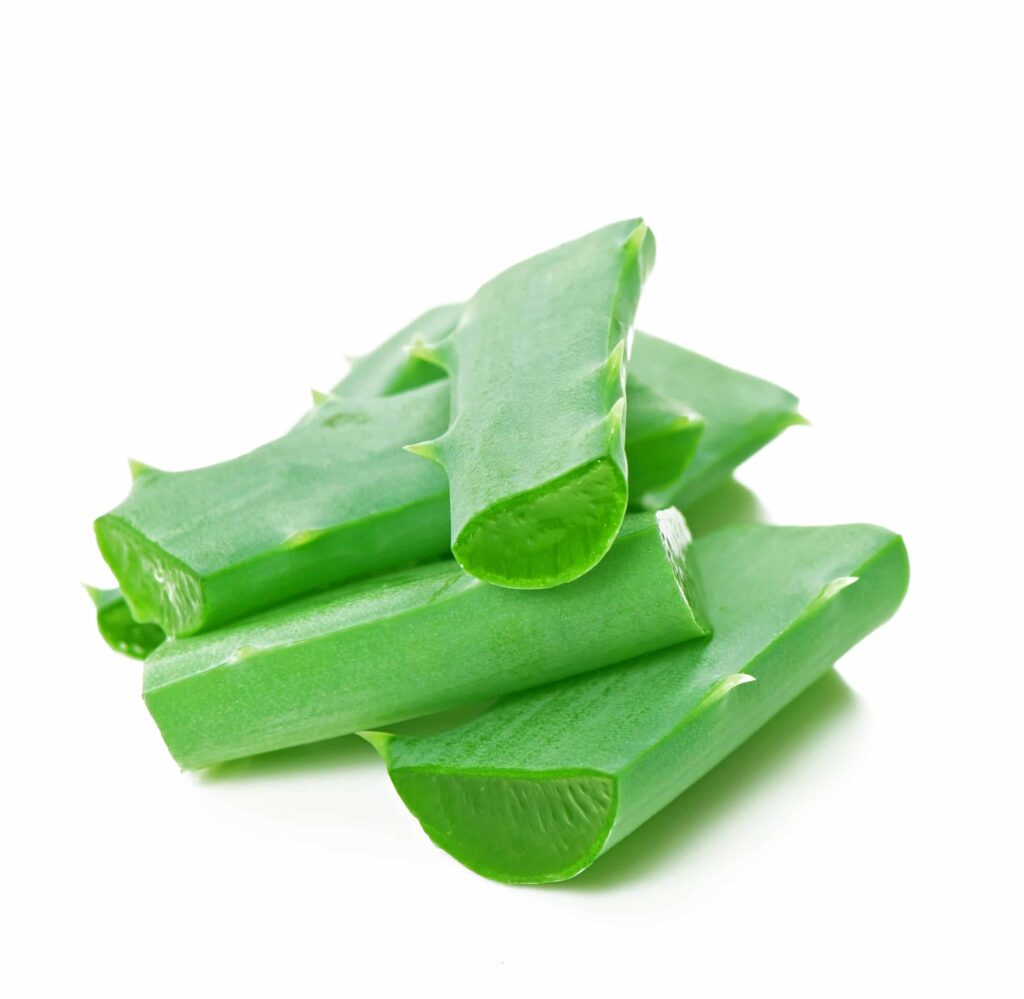
“From helping soothe cuts and sunburns to improving skin’s elasticity and keeping it moisturised, aloe vera is believed to be packed with ingredients that can potentially be very good for the skin,” she added.
“Research has shown that it contains nutrient antioxidants like vitamins A, vitamin C and vitamin E, minerals, amino acids, enzymes, and salicylic acid, among other things. It’s also anti-inflammatory, antibacterial, antiviral and antiseptic.”
“I use products containing aloe vera on my patients after injectable treatments as it helps reduce the redness. It’s even used after laser treatments. Additionally, because aloe vera is quite refreshing, it also helps with the post-injection warmth.”
“And other than helping with ageing skin and acne, aloe vera is also said to help with skin conditions such as psoriasis, seborrheic dermatitis, and frostbite,” she further added.
While one way to use aloe vera is to simply take a leaf from the plant, some also get it pre-packaged, which might be relatively easier to handle and apply.
Rose
Dr Gizem commented: “Roses are a garden staple known for its skin-soothing properties.”

“Several researchers have investigated its beneficial impacts on the skin, including its anti-inflammatory, antioxidant, anti-wrinkling and skin-whitening effects.”
“Its cool and refreshing sprays may also help keep your skin fragrant and moisturised,” she further added.
Some prefer to make rose water at home, while others buy it online. Besides mists and sprays, however, rose oil is also used for skincare.
Rosemary
“A scientific review reported how the antioxidant properties of rosemary can help with different skin conditions, such as damage to the skin due to UV radiation, skin ageing due to pollution, and eczema,” according to Dr Gizem.
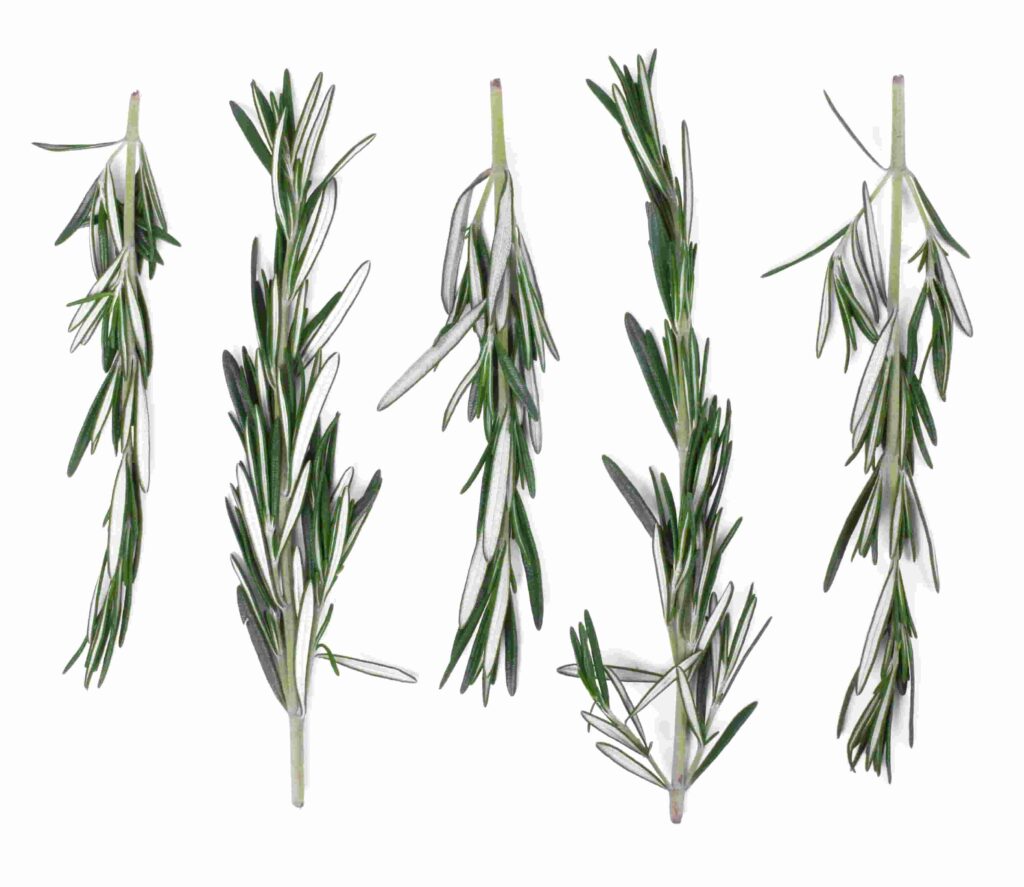
Rosemary essential oil is also readily available, but it’s usually recommended that you apply it after diluting it with a carrier oil like coconut or jojoba so that it doesn’t damage the skin.
Green Tea
Dr Gizem said: “With proteins, carbohydrates and minerals, such as vitamins, calcium, zinc, and iron, green tea is also filled to the brim with ingredients that are considered good for the skin.”
“Particularly, the epigallocatechin gallate (EGCG) in green tea is fairly well known for its ability to protect cells against the damaging effects of free radicals,” she commented.
“Moreover, it’s also believed to help reduce inflammation. Studies have also shown the positive effects of EGCG in reducing the production of sebum – the oily substance produced by the glands in the body – and helping with acne.”

Dr Gizem added: “Other than that, there’s also research to suggest that green tea might help conditions such as psoriasis, rosacea, eczema, and premature ageing of the skin.”
Besides drinking the tea itself, at-home and store-bought green tea face masks are quite popular.
Some also consider steaming their face with green tea water. However, if it is too much of a hassle, you can consider buying skincare products that already contain green tea.
Lavender
Dr Gizem said: “Being an antioxidant, lavender can help protect the skin against the harmful effects of free radicals and possibly reduce the signs of skin ageing, including wrinkles.”

“It can also fight against bacteria, which might, in turn, help with acne. The anti-inflammatory effects can further help calm the skin,” she explained.
Lavender oil can be purchased online as well. It has been applied both directly onto the skin and after being diluted with a carrier oil.
Calendula
Dr Gizem noted: “Scientific research has discussed some very interesting facets of calendula, including its ability to stimulate the production of collagen, be used as a sunscreen for protection against harmful radiations from the sun and help in the prevention of dermatitis in breast cancer patients getting radiotherapy.”
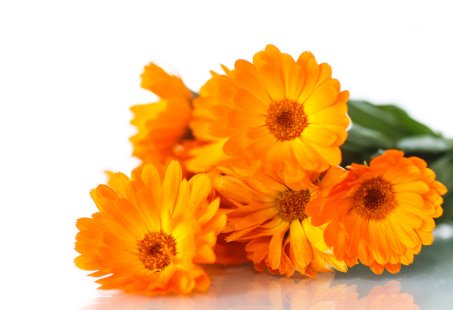
She added: “Moreover, it may provide further protection to the skin by fighting against different microbes and free radicals.”
This ingredient is available in different preparations, such as oil and cream.
Witch Hazel
Dr Gizem said: “Witch hazel is the kind of natural ingredient that has been around for hundreds of years.”
“On the one hand, many people fear using witch hazel because of its potential to irritate and dry out the skin.”
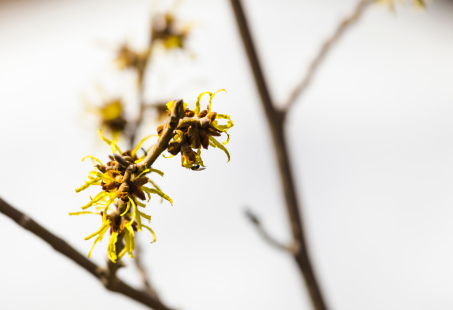
“However, because of its anti-inflammatory properties due to compounds like tannins and gallic acid, others think that it can actually be good for the skin, especially for acne.”
“I use products containing witch hazel for my patients after their injections because it also helps with post-treatment redness,” Dr Gizem added.
“Some also like to apply witch hazel because it minimises the appearance of enlarged pores, even if temporarily and may potentially calm the skin.”
Witch hazel is widely available as a toner for use. However, because the reviews on the use of this ingredient are so mixed, it’s a good idea to consult your dermatologist before using it.
Echinacea
According to Dr Gizem: “Echinacea is not exactly so well-known in the skincare world as of yet, but there’s some promising research on this herbal ingredient.”
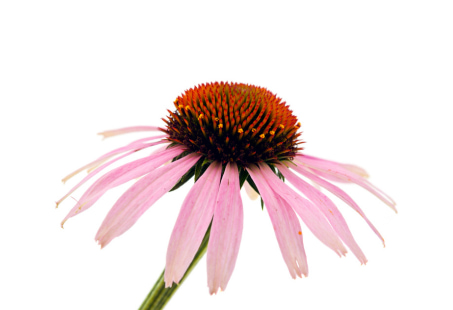
“Research has found that echinacea not only hydrates the skin but also has an anti-ageing effect, as it has been shown to reduce the appearance of wrinkles.”
“A study also reported its use in the treatment of other skin concerns, such as psoriasis, skin boils, burns, and wounds.”
Chamomile
“In addition to having a wound-healing effect, chamomile is also believed to be good for inflammatory conditions of the skin, such as eczema,” according to Dr Gizem.

“Research has also reported some other potential benefits of this ingredient, including hydrating the skin, getting rid of acne, improving skin elasticity, whitening the skin, and restoring sensitive skin.”
She also said: “As an antioxidant, chamomile may also help reduce other signs of ageing, such as wrinkles and fine lines.”
It is already found in several skincare products, but some people also DIY with chamomile facial steam or ice cubes/tea bags to depuff their eyes.
Methodology
- The team of specialists at Longevita.co.uk noticed a breakout in Google searches for the flower “Feverfew” in regard to skincare.
- Resultantly, desk research was undertaken using the keywords “flowers for skincare,” “plants for skincare,” “best flowers for skincare,” “best plants for skincare,” “best natural ingredients for skin,” and “best natural ingredients for face” to source a refined list of the most popular flowers and plants beneficial for the skin.
- The 9 most popular plants and flowers were revealed and evaluated by the specialists at Longevita.
- Dr Gizem Seymenoflu, aesthetics facial doctor for Longevita as to the benefits of each flower and plant.
